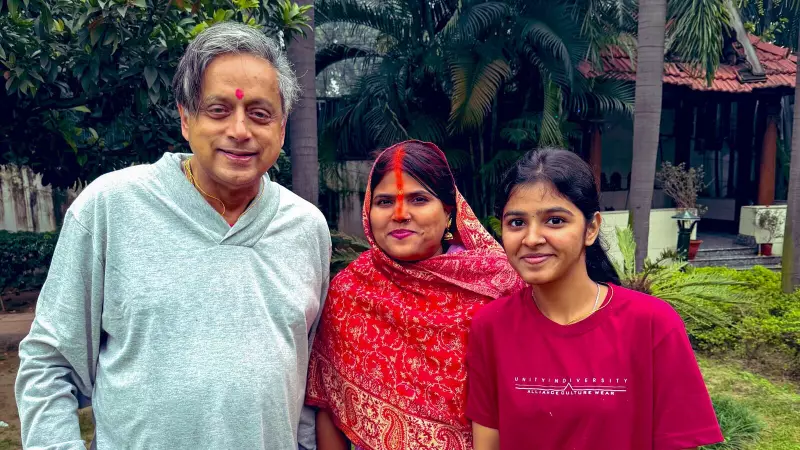
In a striking commentary that has sent shockwaves through Indian political circles, Congress MP Shashi Tharoor has identified dynastic politics as a "grave threat" to the nation's democratic fabric. The Kerala parliamentarian's candid observations have ignited a fierce debate, drawing sharp reactions from both his own party and political opponents.
The Controversial Remarks That Shook Indian Politics
During a recent public engagement, Tharoor didn't mince words when addressing the elephant in the room. "When family members inherit political power without adequate experience or public mandate," he stated, "it undermines the very essence of our democratic system." His comments come at a time when Indian politics continues to be dominated by several prominent political families across party lines.
BJP Seizes the Opportunity: 'Finally, Some Truth from Congress'
The Bharatiya Janata Party was quick to capitalize on Tharoor's statements. BJP leaders welcomed what they called "a rare moment of honesty" from within Congress ranks. Party spokespersons highlighted the irony of a Congress MP criticizing dynastic politics while being part of a party historically associated with family leadership.
"We appreciate Mr. Tharoor's belated realization," commented a senior BJP leader. "For decades, the Congress has built its foundation on dynastic rule. Perhaps this marks the beginning of their self-awareness."
Congress Response: Mixed Reactions and Internal Tensions
Within Tharoor's own party, reactions were notably divided. While some Congress leaders privately acknowledged the validity of his concerns, others rushed to defend the party's tradition. Senior Congress figures emphasized that talent and capability, not just family connections, have always mattered in their party's leadership selection.
However, the internal divide was palpable. Some younger Congress members saw Tharoor's comments as a necessary conversation starter, while established leaders viewed them as potentially damaging to party unity.
The Broader Implications for Indian Democracy
Political analysts suggest Tharoor's remarks touch upon a fundamental challenge facing Indian democracy. The prevalence of political dynasties, while not unique to India, raises important questions about:
- Equal opportunity in political participation
- Meritocracy versus inheritance in leadership roles
- Grassroots workers' morale and promotion prospects
- The health of democratic institutions
A History of Speaking Truth to Power
This isn't the first time Tharoor has courted controversy with his forthright opinions. Known for his intellectual approach to politics and willingness to break from party lines when principle demands, the former UN diplomat has consistently positioned himself as a thinker-politician unafraid of difficult conversations.
His latest comments, however, strike at the heart of how Indian political parties, including his own, have traditionally functioned.
The Road Ahead: Will This Spark Genuine Reform?
As the dust settles on this latest political storm, the crucial question remains: Will Tharoor's bold statements lead to meaningful discussion about political reform, or will they simply fade away as another controversial soundbite?
What's clear is that the conversation about dynastic politics in India has been pushed back into the spotlight, forcing all political parties to examine their own practices and principles regarding leadership selection and political inheritance.






